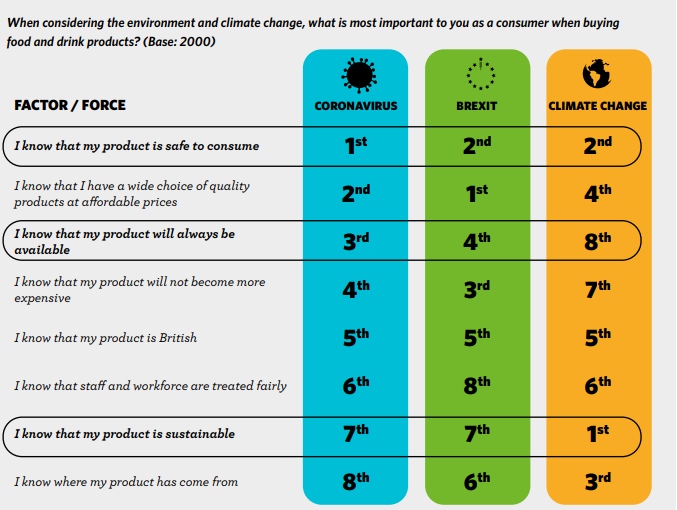‘Safety First’: How concerns around Covid food safety are shaping expectations towards the food and drink industry

Lesley Anderson, Director, Brand Marketing
Food has always had to be safe to consume, but did we previously take this for granted pre-pandemic?
I certainly never considered wiping the packaging with anti-bacterial spray or wondering whether food handling was done safely just over a year ago.
Thankfully, the UK Government tells us that it is very unlikely that you can catch coronavirus (COVID-19) from food.
Additionally, the risk of COVID-19 cross-contamination to food and food packaging is also very low.
Plus, when it comes to food shopping, staff handling products in-store are also required to maintain a high degree of personal cleanliness and wear suitable clean clothing.
It’s perhaps not surprising that food safety is at the forefront of our thoughts when considering the pandemic. But is food safety as much of a concern to us when we think about the consequences of Brexit or tackling climate change?
Well, findings from research specially commissioned for our recent report, ‘Navigating A United vs. Divided Nation‘, indicates that food safety is indeed a priority for us when considering all three areas.
We asked the public to rank a range of eight factors they consider when buying food and drink products with Brexit, climate change and coronavirus in mind.
Food safety placed first with regard to coronavirus and Brexit and second with regard to climate change.
Contrast this with sustainability which bagged the top spot when considering climate change but was then relegated to seventh place when considering coronavirus and Brexit.

However, expectations towards the food industry on the issue of food safety differed depending on age and where we live around the country.
Our report found that just over two thirds (34%) of 18-24 year-old UK consumers felt there was a lot more that could be done by the food industry to address concerns around food safety.
Conversely, just 13% of 65 year-olds felt the same.
The difference in opinion between Gen Z and Baby Boomers caring more about the impact COVID-19 has had on their products, could be the reason why immunity-boosting ingredients aimed at a younger generation, is set to be a huge trend for 2021.
When looking at which areas of the UK thought the industry was allaying their concerns around food safety, only one in five (20%) Scots thought the industry had gone above and beyond regarding food safety – whereas in Wales almost two thirds (32%) of people thought this.
With the devolved nations going to the polls this Spring it will be interesting to see whether the new administrations in Scotland and Wales try and differentiate themselves from England with regard to regulatory standards concerning food and drink.
Politicians would have to weigh up the benefits of national sovereignty on such issues against the inevitable disruption and increased costs to industry (and potentially consumers) this would cause.
So all that said, once the pandemic is under better control and the vaccine rollout reaches Gen Z, will we be having the same discussion in a year’s time?
Many commentators talk of us ‘learning to live with Covid’ and if food safety is also a priority for consumers mindful of Brexit’s legacy and tackling climate change, it is likely we will see its profile rise in marketing strategies and campaigns over the period to come.
Get in touch with us to learn more about our work and our outlook on these important issues.
Find Out More
-
Achieving Outsized Impact by Building Stronger Country Reputation
February 18, 2025


